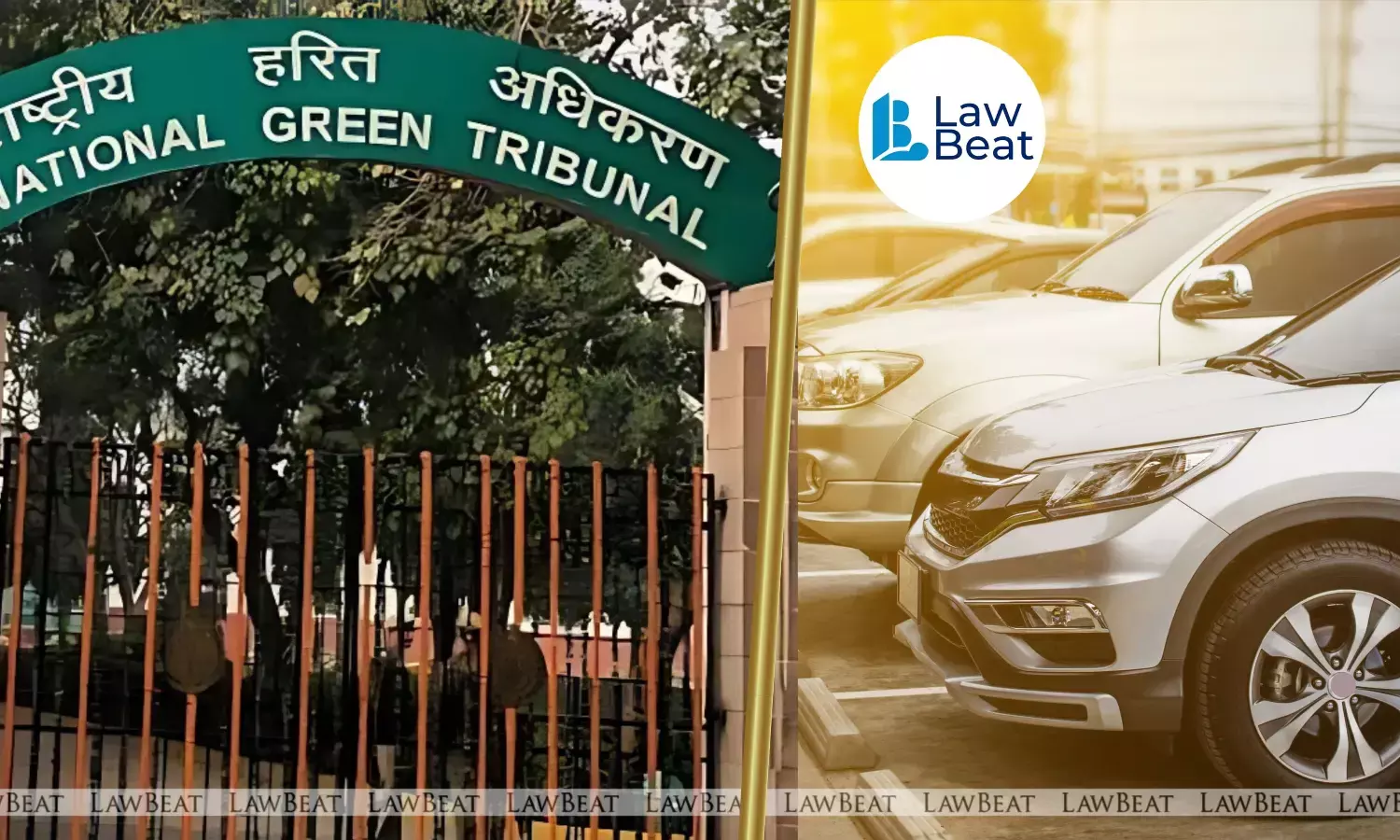NGT Reviews Progress in Study on Cancer Causing Chemicals in Cars; ICMR to Begin Research Work

NGT Directs ICMR to Expedite Study on Toxic Car Chemicals
The National Green Tribunal (Principal Bench, New Delhi) has reviewed the progress in a case concerning the presence of cancer causing flame retardant chemicals inside cars, following a news report that raised serious public health concerns.
The matter involves exposure to toxic substances used in vehicle interiors, particularly affecting professional drivers and passengers who spend prolonged hours inside closed vehicles.
The case was initiated after NDTV.com published a report on May 8, 2024, titled “People Are Breathing in Cancer-Causing Chemicals in Their Cars.”
Acting on its suo-motu powers, the Tribunal registered Original Application No. 717/2024 to examine the issue of public health and environmental safety linked to the use of flame-retardant materials in automobiles.
The Tribunal has been monitoring the matter to ensure that the potential health hazards are scientifically investigated and that appropriate preventive steps are taken by the concerned authorities, including the Indian Council of Medical Research (ICMR), the Central Pollution Control Board (CPCB), and the Ministry of Road Transport and Highways.
At the latest hearing held on September 26, 2025, the Bench comprising Mr. Justice Prakash Shrivastava (Chairperson) and Dr. A. Senthil Vel (Expert Member) took note of the additional affidavit filed by ICMR on July 22, 2025. The affidavit details the progress made in initiating a scientific study on the issue and the steps taken for obtaining financial and administrative approvals.
According to ICMR, the National Institute of Occupational Health (NIOH), Ahmedabad, has prepared a detailed research proposal that includes the collection and analysis of biological samples from vehicle drivers across various regions in India.
The study aims to scientifically assess the risks associated with long-term exposure to flame retardant chemicals that may accumulate in the air inside cars. The research will adopt a zone stratified biomonitoring approach, ensuring data is collected from diverse climatic and occupational conditions to produce representative findings.
As per the affidavit, the proposed study will be conducted over 18 months, divided into several operational phases. These include recruitment of participants, procurement of analytical standards and consumables, preparation of standard operating procedures, method validation, sample collection, laboratory testing, data processing, interpretation, and report dissemination.
The detailed timeline provides for a sequential process of recruitment and testing, followed by statistical analysis and exposure modeling.
The total project budget has been fixed at Rs. 85.33 lakh, and ICMR clarified that an additional nine months were required to secure financial approvals from the competent authorities. This period was essential for obtaining due sanction and clearance for fund allocation, which has now been completed.
During the hearing, Dr. Sivaperumal (Scientist-E, ICMR) appeared before the Tribunal and informed that all requisite approvals have been received and that the research work will commence within a week. He confirmed that the study will be undertaken strictly in accordance with the methodology and timelines outlined in the July 2025 affidavit.
The Tribunal, recording the submission, directed the ICMR to submit a detailed progress report at least one week before the next hearing. It also emphasized that the research must be conducted with scientific rigour and completed within the stipulated timeframe.
The Bench further directed that the ICMR make all possible efforts to expedite the study so that the findings can be used for policy action, particularly to protect occupational drivers and other vulnerable groups from prolonged exposure to hazardous chemicals.
The Tribunal noted that the issue has significant implications for both public health and environmental governance. Flame-retardant chemicals, though used to enhance fire safety, have been associated with long term toxic effects including respiratory illness, hormonal disruption and carcinogenicity.
Given the widespread use of vehicles and daily exposure of millions of citizens, the Tribunal underscored that the study’s outcomes could play a crucial role in guiding future automobile safety standards and regulatory action.
By keeping the matter under active supervision, the Tribunal has reaffirmed its commitment to addressing environmental risks that have a direct bearing on human health. It observed that such scientific inquiries are vital in bridging regulatory gaps and in shaping policies for chemical management in consumer products.
The next hearing in the matter is scheduled for December 24, 2025, when the Tribunal will review ICMR’s progress report and the initial phase of research implementation.
Case Title: News Item titled “People Are Breathing in Cancer-Causing Chemicals in Their Cars” published on NDTV.com on 08.05.2024
Bench: Mr. Justice Prakash Shrivastava (Chairperson) and Dr. A. Senthil Vel (Expert Member)
Date of Order: September 26, 2025
